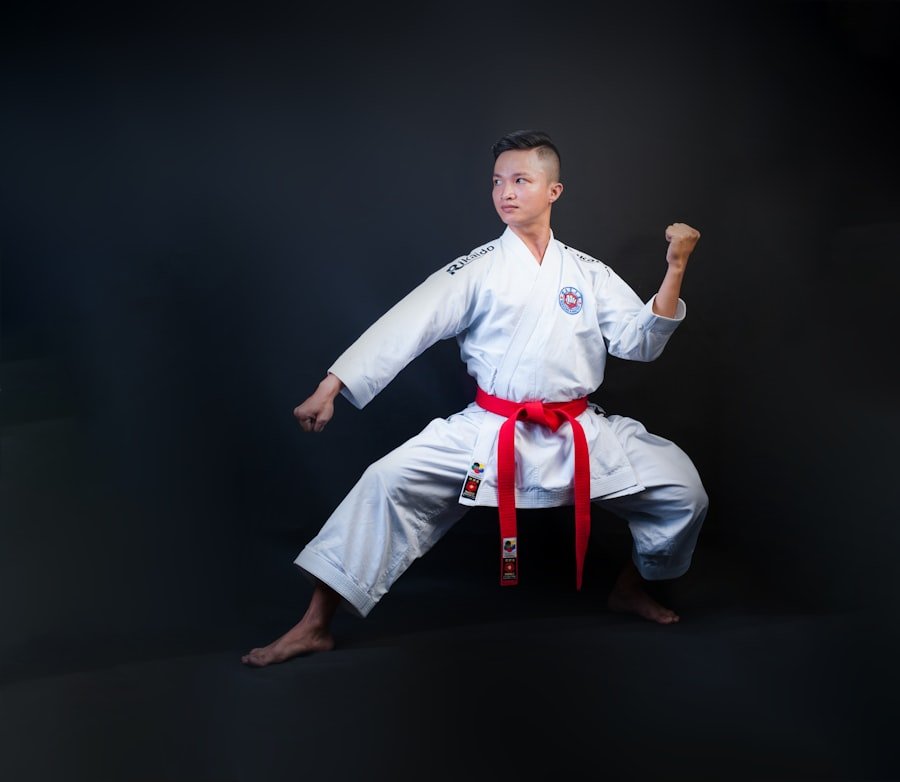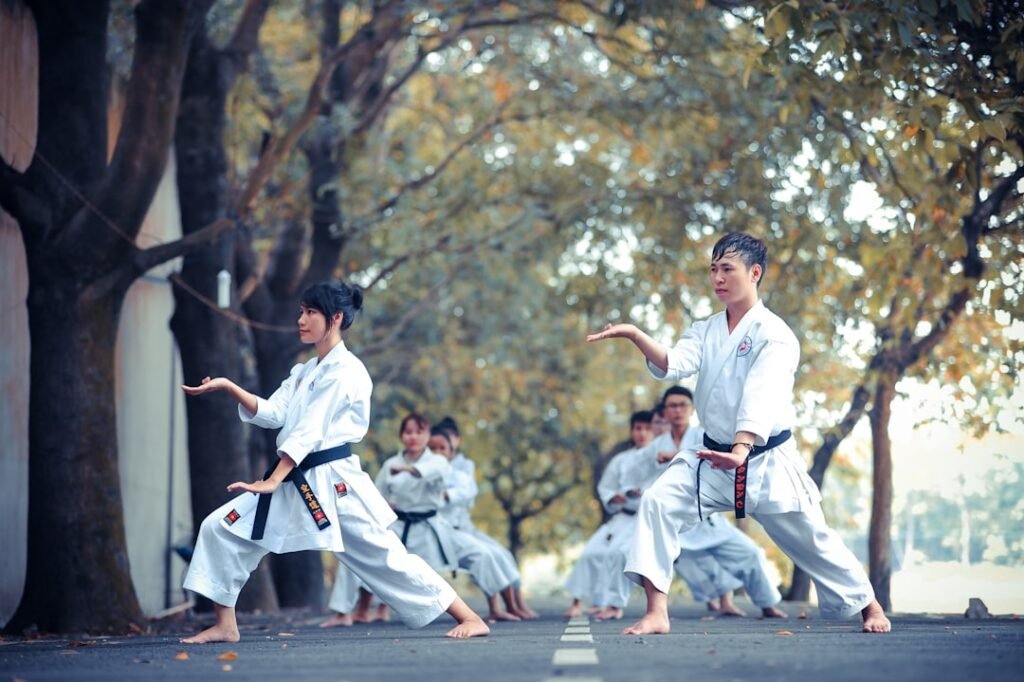Sun Tzu’s “The Art of War” is a seminal text that has transcended its original military context to become a cornerstone of strategic thinking across various fields, including business, sports, and personal development. Written over two millennia ago, this ancient treatise offers profound insights into the nature of conflict, leadership, and the human condition. Its teachings have been revered not only for their tactical brilliance but also for their philosophical depth.
The text is a reflection of the socio-political landscape of ancient China, where warfare was not merely a physical confrontation but a complex interplay of strategy, psychology, and ethics. As such, understanding “The Art of War” requires more than just a superficial reading; it demands an appreciation of the cultural and historical context in which it was conceived. The enduring relevance of Sun Tzu’s work lies in its ability to adapt to contemporary challenges.
Leaders and strategists from various domains have drawn upon its principles to navigate the complexities of modern life. However, to fully grasp the nuances of Sun Tzu’s wisdom, one must delve into the original language of the text. The subtleties embedded in the Chinese characters and phrases often elude translation, leading to potential misinterpretations.
Thus, for those seeking to harness the full power of Sun Tzu’s teachings, an understanding of Classical Chinese becomes essential. Spaces are filling up fast! Register for Chinese classes at the LC Chinese School in Oslo today.
Table of Contents
ToggleSummary
- Sun Tzu’s Art of War is a timeless classic on strategy and warfare.
- Understanding the original language of Sun Tzu’s work is crucial for grasping its full meaning.
- Oslo’s martial artists face the challenge of interpreting Sun Tzu’s text in its original form.
- Exploring linguistic and cultural nuances is essential for a deeper understanding of Sun Tzu’s teachings.
- Reading Sun Tzu in its original language offers valuable insights and benefits for martial artists.
The Importance of Understanding the Original Language
The significance of engaging with “The Art of War” in its original language cannot be overstated. Classical Chinese is a language rich in meaning and layered with connotations that are often lost in translation. Each character carries with it a history and a cultural resonance that shapes its interpretation.
For instance, the word for “war” (战争) encompasses not just the act of fighting but also the broader implications of conflict, strategy, and resolution. When translated into English or other languages, these nuances can be diluted or entirely omitted, leading to a loss of depth in understanding. Moreover, the structure of Classical Chinese allows for multiple interpretations within a single phrase.
This ambiguity can be both a challenge and an opportunity for readers. Those who are proficient in the language can appreciate the intricacies of Sun Tzu’s arguments and engage with them on a deeper level. They can explore how different interpretations might apply to various situations, thereby enriching their strategic thinking.
In this way, learning the original language becomes not just an academic exercise but a vital tool for personal and professional growth.
The Challenge for Oslo’s Martial Artists

In Oslo, where martial arts have gained popularity as both a sport and a means of personal development, practitioners face unique challenges when it comes to studying “The Art of War.” Many martial artists are eager to incorporate Sun Tzu’s principles into their training regimens but may find themselves hindered by language barriers. While numerous translations exist, they often fail to capture the essence of the original text, leading to misunderstandings that can affect their practice. Furthermore, the cultural context surrounding martial arts in Norway differs significantly from that of ancient China.
The philosophies underpinning martial arts are deeply rooted in Chinese culture, which informs not only the techniques but also the mindset required for mastery. As Oslo’s martial artists strive to integrate these teachings into their training, they must navigate the complexities of adapting ancient wisdom to modern contexts. This challenge underscores the importance of understanding the original language and cultural nuances that shape Sun Tzu’s work.
Exploring the Linguistic and Cultural Nuances
To truly appreciate “The Art of War,” one must explore the linguistic and cultural nuances that permeate its text. The language used by Sun Tzu is imbued with metaphors and allegories that reflect the values and beliefs of ancient Chinese society. For example, concepts such as “the way” (道) and “the general” (将) are not merely terms but embody philosophical ideas about leadership and moral conduct in warfare.
Understanding these terms requires an appreciation of Confucian and Daoist thought, which heavily influenced Sun Tzu’s worldview. Additionally, the cultural significance of certain phrases can provide insights into the strategic mindset that Sun Tzu advocates. For instance, his emphasis on deception and adaptability reflects a broader cultural understanding of harmony and balance in conflict.
By studying these linguistic elements within their cultural context, Oslo’s martial artists can gain a more profound understanding of how to apply Sun Tzu’s teachings effectively in their own practices.
The Benefits of Reading Sun Tzu in its Original Language
Reading “The Art of War” in its original language offers numerous benefits that extend beyond mere comprehension. For one, it fosters a deeper connection with the text itself. Engaging with Sun Tzu’s words as they were originally penned allows readers to experience the rhythm and cadence of his writing, which can evoke emotions and insights that translations may fail to capture.
This connection can inspire martial artists to internalise the principles outlined in the text more fully. Moreover, studying the original language encourages critical thinking and analytical skills. As readers grapple with complex phrases and their meanings, they develop a more nuanced understanding of strategy and conflict resolution.
This intellectual engagement can translate into improved decision-making abilities both on and off the mat. For martial artists in Oslo, this means not only enhancing their technical skills but also cultivating a strategic mindset that can be applied in various aspects of life.
Overcoming the Language Barrier

While the benefits of reading “The Art of War” in its original language are clear, many aspiring scholars and martial artists may feel daunted by the prospect of learning Classical Chinese. The language is notoriously challenging due to its unique characters, tonal nature, and lack of grammatical markers found in many Western languages. However, overcoming this barrier is not insurmountable; with dedication and the right resources, anyone can embark on this rewarding journey.
In Oslo, there are opportunities for individuals to learn Classical Chinese through various educational institutions and language schools. Engaging with experienced instructors who understand both the language and its cultural context can significantly enhance the learning experience. Additionally, joining study groups or online forums can provide support and motivation as learners navigate the complexities of this ancient language together.
The Impact on Martial Arts Practice
The impact of understanding “The Art of War” in its original language on martial arts practice is profound. For practitioners in Oslo, integrating Sun Tzu’s principles into their training can lead to enhanced performance and a more strategic approach to competition. By grasping the subtleties of his teachings, martial artists can develop a mindset that prioritises adaptability, foresight, and psychological awareness—qualities that are essential for success in any martial discipline.
Furthermore, as practitioners delve deeper into Sun Tzu’s philosophy, they may find themselves reflecting on their own motivations and goals within martial arts. The text encourages self-awareness and introspection, prompting individuals to consider not only how they engage with opponents but also how they approach their own training journeys. This holistic perspective can foster personal growth and resilience, qualities that extend beyond the dojo or training hall.
Learning from Ancient Chinese Wisdom
The wisdom encapsulated in “The Art of War” extends far beyond military strategy; it offers timeless lessons applicable to various aspects of life. For Oslo’s martial artists, engaging with this ancient text provides an opportunity to learn from centuries-old insights into human behaviour, conflict resolution, and leadership. By embracing these teachings, practitioners can cultivate qualities such as patience, discipline, and humility—traits that are essential for both martial arts mastery and personal development.
Moreover, Sun Tzu’s emphasis on understanding oneself and one’s environment resonates deeply within martial arts philosophy. His teachings encourage practitioners to assess their strengths and weaknesses while remaining attuned to external factors that may influence outcomes. This holistic approach fosters adaptability and resilience—qualities that are invaluable not only in combat but also in navigating life’s challenges.
The Role of Language in Martial Arts Philosophy
Language plays a crucial role in shaping martial arts philosophy, particularly when it comes to interpreting foundational texts like “The Art of War.” The words we use to describe techniques, strategies, and philosophies influence our understanding and application of these concepts. In this sense, language serves as both a tool for communication and a lens through which we view our practice. For Oslo’s martial artists seeking to deepen their understanding of their craft, engaging with Classical Chinese offers an opportunity to explore how language shapes thought.
By examining how specific terms are used within “The Art of War,” practitioners can gain insights into Sun Tzu’s strategic mindset and apply these lessons to their own training methodologies. This exploration reinforces the idea that language is not merely a means of expression but also a powerful vehicle for conveying complex ideas.
Strategies for Studying Ancient Texts
Studying ancient texts like “The Art of War” requires thoughtful strategies to navigate their complexities effectively. For those in Oslo looking to engage with Sun Tzu’s work in its original language, several approaches can enhance comprehension and retention. First and foremost is establishing a solid foundation in Classical Chinese grammar and vocabulary through structured courses or self-study resources.
Additionally, breaking down passages into manageable sections allows for focused analysis and reflection on each phrase’s meaning. Engaging with commentaries or scholarly interpretations can provide valuable context and insights that enrich one’s understanding. Finally, discussing interpretations with fellow learners or instructors fosters collaborative learning and encourages diverse perspectives on Sun Tzu’s teachings.
Embracing the Challenge and Reaping the Rewards
In conclusion, embracing the challenge of studying “The Art of War” in its original language offers immense rewards for Oslo’s martial artists. By delving into Classical Chinese, practitioners can unlock deeper meanings within Sun Tzu’s teachings while cultivating essential skills applicable both on and off the mat. The journey may be demanding; however, it is one filled with opportunities for personal growth, strategic insight, and enhanced performance.
As interest in martial arts continues to grow in Oslo, so too does the potential for individuals to engage with ancient wisdom that has stood the test of time. The LC Chinese School in Oslo stands out as an excellent resource for those eager to embark on this linguistic journey. With dedicated courses tailored specifically for learners at all levels, students can immerse themselves in Classical Chinese while gaining insights into its rich cultural heritage.
By embracing this challenge together with fellow enthusiasts at LC Chinese School, martial artists can reap the rewards not only in their practice but also in their broader understanding of life’s complexities through the lens of Sun Tzu’s timeless wisdom.







